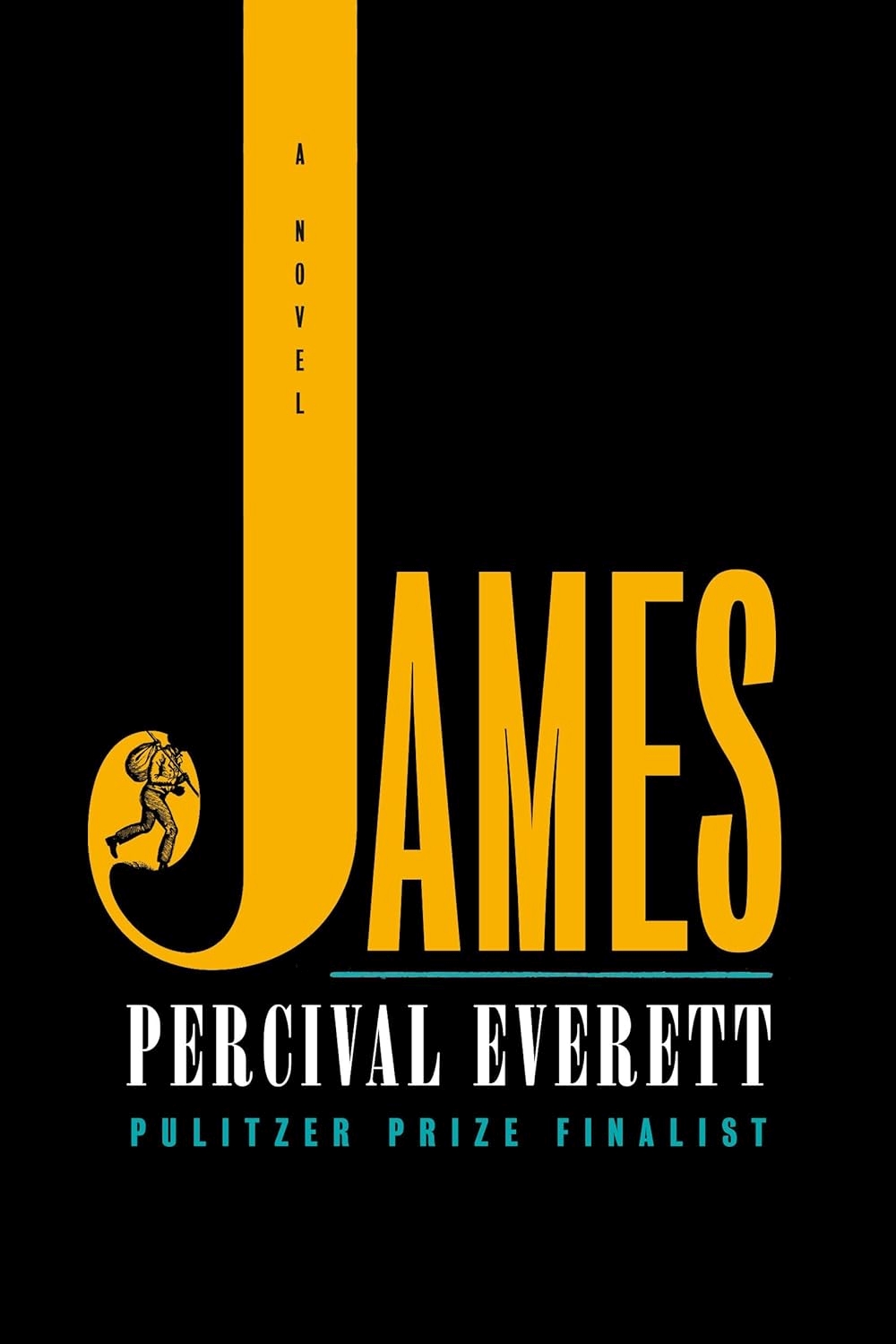
“What you doin’ out here?” (Huck) asked.
“Furst off, I’m freezin’,” I said. “What you be doin’ on dis ilan? And why you got blood all ova ya?”
“I kilt myself,” the boy said.
I looked him over. “You din’t do a good job.”
‘Well, Miss Watson, that damn judge and Pap think I’m dead and that’s all that matters. They think I was murdered.”
“Why dey think dat?” I asked.
“I kilt a pig and spread his blood all around Pap’s cabin. I made a mess like there had been a fight in there.”
In my head I was doing the math. Huck was supposedly murdered and I’d just run away. Who did I think they would suspect of the heinous crime?”
from James
Percival Everett
Doubleday
A different account of that famous raft trip down the Mississippi
Percival Everett can be very funny about things that are not in the least bit funny, as in The Trees (2021), a history of lynchings, or Erasure (2001), recently made into the Oscar-winning screenplay for “American Fiction.” In James, he retells The Adventures of Huckleberry Finn, but from the perspective of Jim, the character escaping slavery.
Here are many of the events told by Huck—finding Jim on Jackson Island, floating down the Mississippi on their makeshift raft and “borrowed” canoes, the wily and unscrupulous Duke and Dauphin—but the story appears differently when seen through Jim’s eyes.
In Twain’s telling, Jim is kindly, not too bright, uneducated, and superstitious. In Everett’s retelling, it’s all an act the enslaved people play, the role expected of them, which includes translating their words into “slave talk” (“White folks expect us to sound a certain way and it can only help if we don’t disappoint them.”)
In one scene, Jim teaches the enslaved children how to talk in front of White people, using a hypothetical situation: Mrs. Holiday has started a grease fire on the stove.
"Mrs. Holiday is about to throw water on it. What do you say? Rachel?"
Rachel paused. "Missums that water gone make it wurs!"
"Of course that's true, but what's the problem with that?"
Virgil said, "You're telling her she's doing the wrong thing."
I nodded. "So, what should you say?"
Lizzie looked at the ceiling and spoke while thinking it through. "Would you like for me to get some sand?"
"Correct approach, but you didn't translate it."
She nodded. "Oh, Lawd, Missums ma'am, you wan fo me to gets some sand?"
Not surprising, slavery is much more brutal from Jim’s perspective than in the original, with the lashing and lynching of the men and the casual rape of the women. Even Twain’s venerable Judge Thatcher is confronted with his role in the system: “I can’t feed your fantasy that you’re a good, kind master,” Jim tells him. “No matter how gentle you were when you applied the whip, no matter how much compassion you showed when you raped.” The institution of slavery degraded and dehumanized the enslaver and the enslaved alike, though in different ways.
In an interview, Everett emphasized that his book is “not in any way an indictment of Twain at all. I'm writing the novel that Twain was—not ill equipped—but unequipped to write. That being the story of Jim. So, I consider this more as being in discourse with Twain."
Everett’s book even improves on the original by throwing in a twist that Twain would never have seen coming, yet worked far better than that long, unnecessary final segment of Huckleberry Finn on the Phelps farm (What was Twain thinking?)
This review first appeared in The Columbia River Reader (May 15, 2024.) Reprinted with permission.



